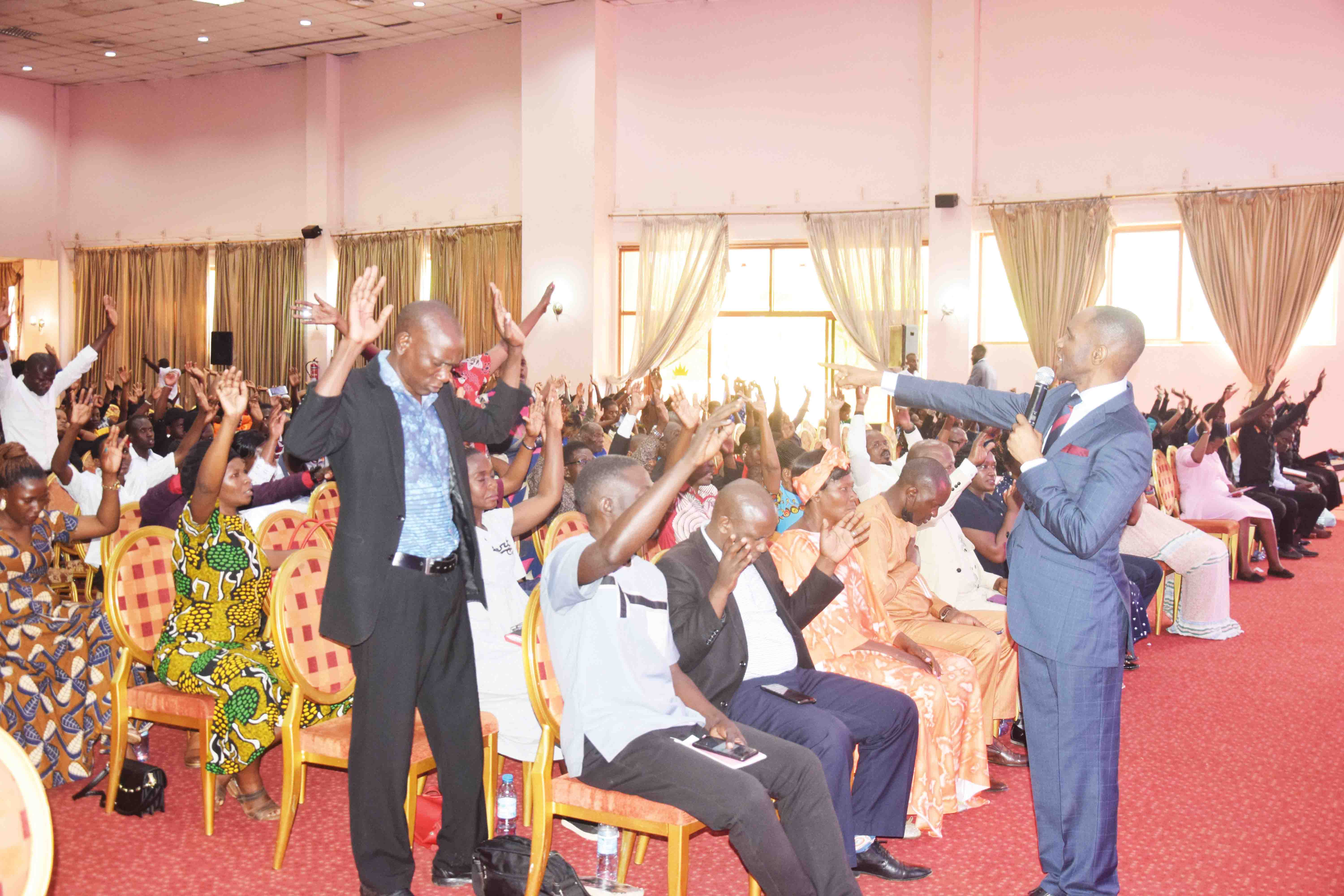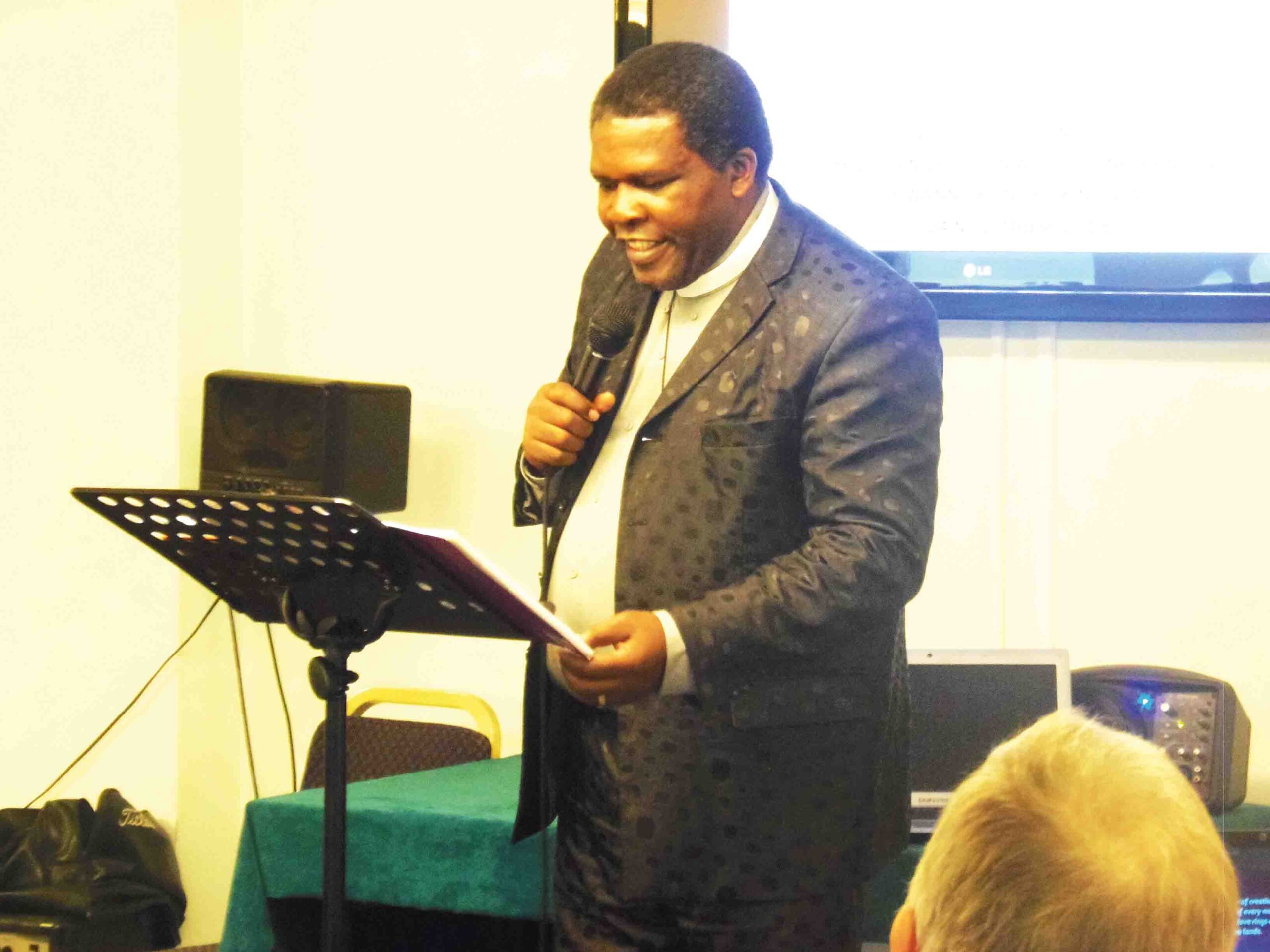By Can Medad Birungi
Evangelism is the spreading of the Christian Gospel by public preaching or personal witness. Christian evangelisation may also be defined as the bringing of the Gospel of Jesus Christ to bear in saving power upon the lives of people.
Its purpose is to put men, women, and children in touch with the living God, who came in Jesus to seek and to save that which was lost.
Jesus himself commanded us to evangelise. All around us are people who have never heard that God loves them and desires abundant life for them. They need to hear this Good News.There are those who received sacraments or grew up in faithful homes, but have now stopped coming to Church or stopped participating in their faith.
Evangelization is for them, too. The world is not going to be evangelised until the evangelised start evangelising.
Uganda is predominantly a Christian country, but has been declining in many areas: morally, politically, socially and economically.
The country is in a moral crisis, and one wonders why Christianity has not transformed the society.
The same people who go to Church on Sundays are the same people who are allegedly involved in scandals, including Church leaders.

Analysts allege that the problem is with the political, civil and religious leadership.
Edmund Burke, a renowned political philosopher said: “All that is necessary for evil to triumph is for good men and women to do nothing.”
Good men and women are just in apathy and evil triumphs! Uganda needs to be re-evangelised again.
The Church of the Lord Jesus Christ is confronted with a staggering commission.
It is like stagnant water and its leadership is on maintenance programme rather than Church planting and expansion.
They seem to be looking for the lost coin, rather than the lost sheep like they should.
Instead of the Church evangelising the world, the world is evangelising the Church.
These are the realities facing those who have been entrusted with the command to “Go therefore and make disciples of all nations” (Matthew 28:19-20).
So, how is the Church to address such a daunting task? Most surely, we cannot be faithful to this stewardship without the power and wisdom of God almighty.

Need to evangelise
Because God commands it. Soul-winning is not an option, or a spiritual gift, or a Church growth programme.
It is a clear, unequivocal, unavoidable command of God (Matthew 28:18-20).
Imagine a man having a cure for cancer and keeping the news to himself.
Imagine seeing someone about to be run over by a car and not trying to warn him.
How much worse it is for those of us who know the only escape from eternal damnation to keep it from those desperately in need of this truth?
Because there is Heaven, evangelism is the decent thing to do to depopulate hell.
What a wonderful blessing it will be to be reunited with loved ones for eternity!
What a privilege it will be for us to see those living forever in Heaven, to whom we have given the Gospel of Christ!
Evangelism glorifies God and encourages believers. John 15:8: “Herein is my Father glorified, that ye bear much fruit; so shall ye be my disciples.”
There are those who say that our prime motivation is not to win people to Christ, but to glorify God.
I do not disagree with them, but I must remind them that the Bible clearly says God is glorified when we bring forth much fruit.
When I win people to Christ, bring them to Church, or share their testimonies with others, believers are encouraged and uplifted.
Iron sharpens iron and my testimony encourages others to do the same.
Also, evangelism perpetuates truth for the next generation because it demonstrates the power of God.
Proverbs 10: 30: “He that wins souls is wise.” Our hands will be stained with the blood of the lost if we do not tell.
“When I say unto the wicked, you shalt surely die; and you give him no warning, nor speaks to warn the wicked from his wicked way, to save his life; the same wicked man shall die in his iniquity; but his blood will I require at your hand” (Ezekiel 3:18).

True evangelism
Evangelism is not inviting someone to Church. Evangelism is inviting someone to Jesus Christ (through faith).
We should stop making Church the issue. We do not want to leave an individual; one who is under the condemnation of God’s eternal wrath, with the false impression that going to Church with us is even part of the solution to that problem.
Rather, we should focus his attention on his deadly situation: that he is a moral criminal who has offended a Holy God, and who needs to repent from his sins and trust in the one who bore his sins on the Cross for deliverance.
Instead of inviting the lost to Church, what we should do is learn how to share the Gospel to them.
This strategy has caused confusion regarding the role of the Church member in the Great Commission.
Concerning a local Church’s evangelism strategy today, it is stated that the Church member’s role in evangelism is to invite someone to Church rather than to invite someone to Christ.
Realistically, would anything change in your Church’s evangelism efforts if it were concluded, “Why not do both?”
This strategy has compromised the maturity level of the local Church.
This section emphasizes the importance of cultivating maturity within a body of believers.
It is true that new converts, even though they have not had time to mature in their faith, are often more zealous in their witness than saints who have been in the faith for a longer time.
Nevertheless, mature believers are often more effective in their witness for Christ.
This strategy restricts the offer of salvation only to those who are willing to “come to Church with us”.
The idea of presenting the Gospel to a family member or friend or total stranger often causes us to become tense.
This strategy breeds a false assurance of salvation among the lost Church. Why is it easier to invite someone to Church rather than to Jesus Christ?
This mindset has compromised our stewardship of the Lord’s resources.
Therefore, the best strategy of the Church is to encourage the members to know Christ and to make Him known.

Effective evangelism
Jesus told His disciples: “Follow me, and I will make you fishers of men (Matthew 4:19).
The implication is that if we are really following, we will be fishing – soul-winning.
Jesus’ last words were: “Go therefore and make disciples of all the nations” (Matthew 28:19).
How, then can you and I be effective witnesses for Him?
Ask God to give you an evangelistic burden for others and live a consistent Christian life. Pray for an opportunity of reaching these souls for Christ.
“You are the light of the world. Let your light so shine before men, that they may see your good works and glorify your Father in Heaven” (Matthew 5:14-16).
We must live obedient lives of integrity and authentic faith.
Build bridges to others. When the Lord shows you those needing Christ, seek to build a relationship with them.
Learn the Gospel and always be ready to share when opportunity avails.
If the right opportunity does not come naturally, create one. Sometimes we wait too long, looking for just the right time to invite someone to Church or to share with them the message of the Gospel.
Lastly, leave the results with God. We are responsible for sharing the Gospel, but only God can convert the soul. Having done your best, let Him do the rest.
Principles
From my experience, genuine concern for the person’s eternal destiny should be the motivation. We should not come across as God’s ‘law enforcement’ officers.
Let us be to those with whom we speak as ones who portray a sincere concern regarding their eternal wellbeing (John 4:34-38).
Also, the role our lifestyles play in evangelism is important.
It is important that we are sensitive to how our actions affect the spread of the Gospel. We do not want to shut doors unnecessarily.
How prepared are you? If you can, take your Bible with you because it is your source of truth and authority.
The parable of the sower in Matthew 13 helps us understand expectations. We are called to “sow seed” not to see conversions.
The responses we witness are determined by the kinds of hearts (the soils) upon which God’s Word falls.
Our job is to throw seed and seeing the fruit of those labors may have to wait until eternity.
The personal treatment we can expect from the worldly minded is important to consider.
The Lord Jesus and disciples were rejected and opposed. So we need to know that no matter how diplomatic we are, we should expect to be rejected, opposed, and persecuted.
Do not force a decision. We should be careful not to force the process of salvation.
You can exhort the hearer to make a decision, but do not pressure or twist their arm to salvation.
The last thing we want to do is get the person to say yes to Jesus just so we will go away and leave him alone.

Discernment
One must discern when to speak. The Lord Jesus Christ was very careful with what level of instruction He gave to an audience.
He did not want to give them more than He knew they could receive (Matthew 13:10-15), (Matthew 7:6).
Therefore, if you know the person in front of you has scoffed at the truth over and over again, it would be wise to not give him any more truth.
Discern whether the hearer is legalistic or contrite. Some with whom we will talk are convinced they have been good enough to be admitted into Paradise.
Others are weighed down with the burden of guilt, convinced that there is no way they will ever make it in.
We need to be sensitive to which of these two frames of mind we are talking.
If we are addressing a legalist, he needs to understand that his good works are not the means of salvation.
If we are addressing a person bearing a heavy load of guilt, keenly aware of his bondage, he needs to understand that no volume of sin is too great for the blood of Christ to cleanse.
On the other hand, for a person to keep bringing up objections with an argumentative spirit is something else.
We need to discern whether the person we are addressing is unable to believe without further clarifications or unwilling to believe no matter how clear our presentation is.
We should “dust off our sandals” and move on.
Finally, if the name of Jesus is not mentioned, then we have not shared the Gospel.
Jews, Muslims, New Agers, all freely use the word ‘God’ but to be theologically accurate, we should use His full title, “the Lord Jesus Christ.”
The writer is the President & Founder of World Shine Ministries
medabirungi@gmail.com





















